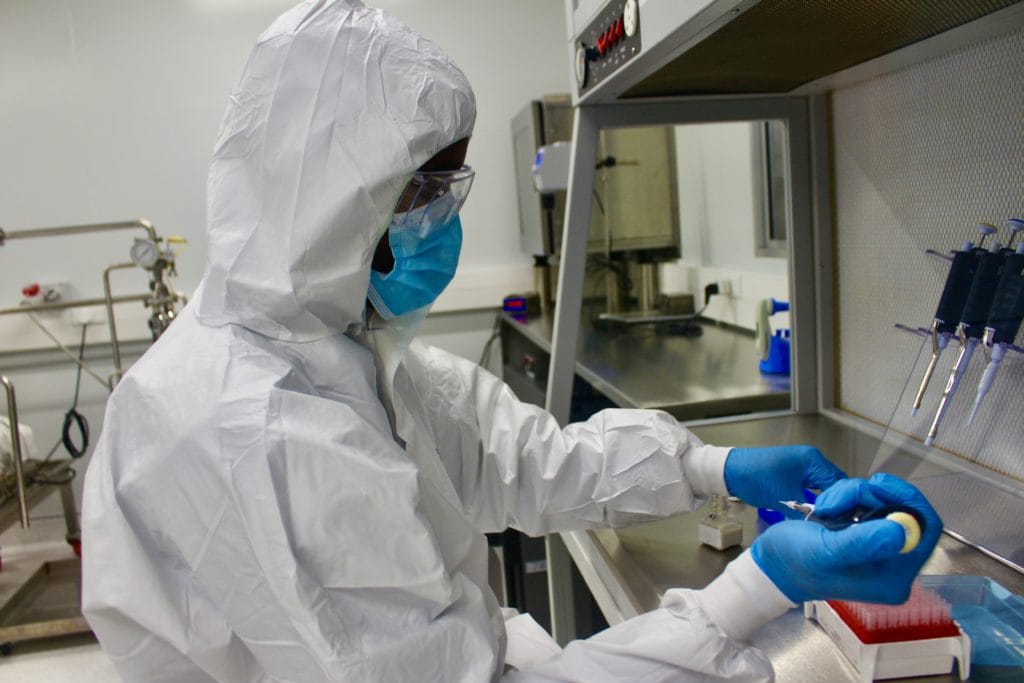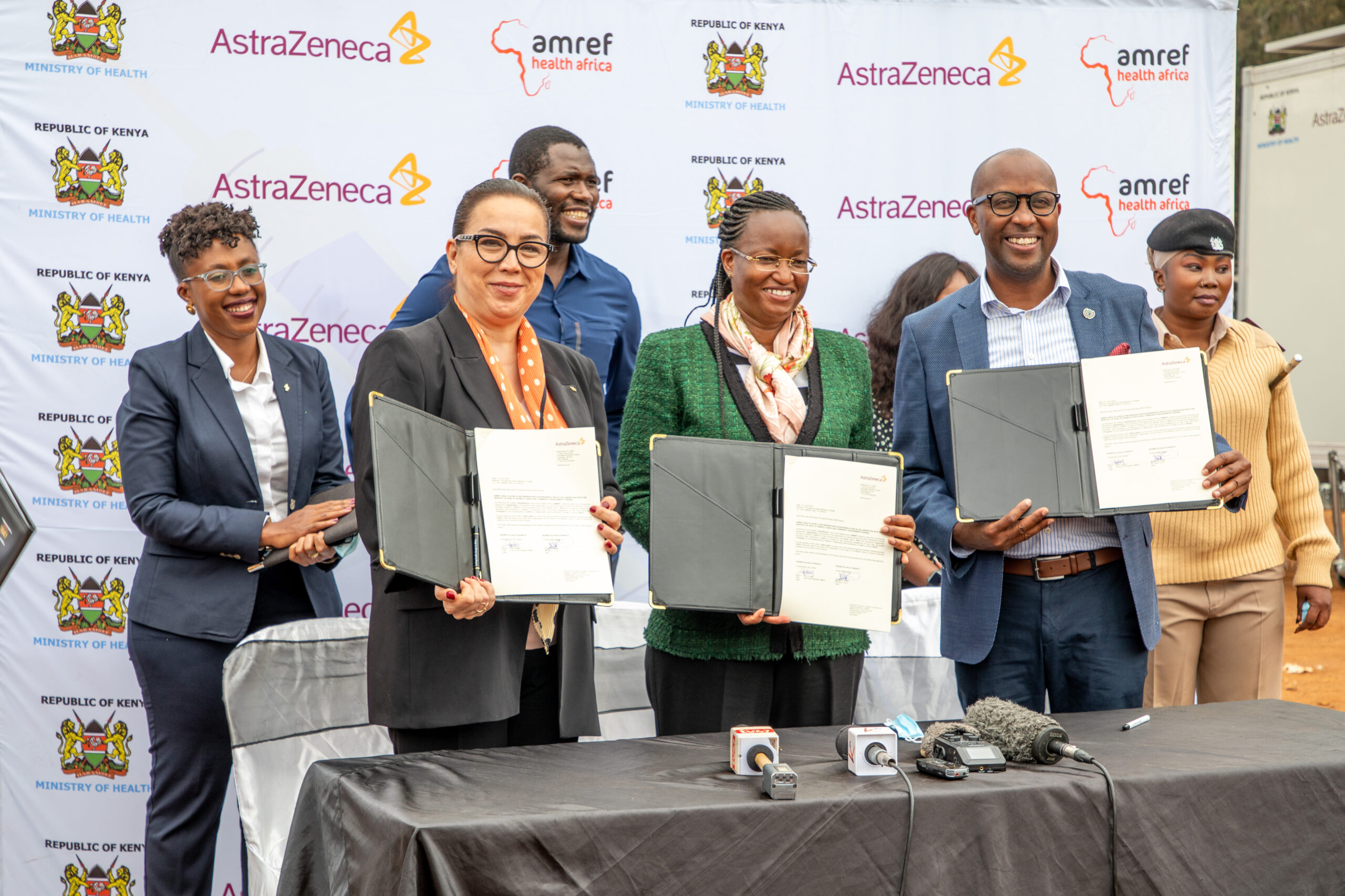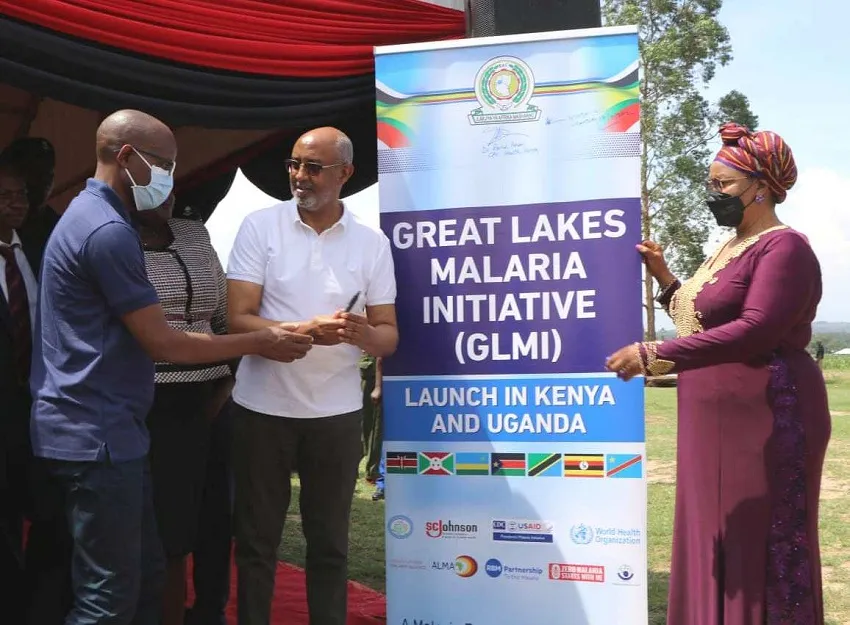Communiqué: 2019 Africa Health Agenda International Conference
Wednesday, 8 May, 2019

WE, the participants from government, private sector, civil society, parliamentarians including youth advocates, media, health professionals and community representatives attending the third Africa Health Agenda International Conference (AHAIC) in Kigali, Rwanda, from March 3-7 and comprising more than 1,800 participants from 49 countries;
HAVING shared progress and strategies on how Africa can accelerate attainment of Universal Health Coverage (UHC) under the AHAIC 2019 theme 2030 Now: Multi- sectoral Action to Achieve Universal Health Coverage in Africa;
TAKING cognisance of the Sustainable Development Goal (SDG) targets and specifically that which identifies UHC as one of the best ways to achieve the other eight health targets; the commitments made at the sixth Tokyo International Conference on African Development (TICAD VI) of 2016 rallying multi-sectoral collaboration to achieve UHC; the first World Health Organisation Africa Health Forum held in Kigali in 2017 at which African health leaders committed to keeping UHC as the overarching approach to attaining SDG3; and the 2018 Declaration of Astana, through which countries vowed to strengthen-their primary health care (PHC) systems as an essential step towards achieving UHC;
NOTE with concern that 18 years after African governments committed to allocating 15% of their annual budgets to health, only very few countries have done so;
THAT Fragile and Conflict-Affected States in particular have neither the budget nor the political or governance capacity to meet this commitment;
THAT whereas 85% of diseases can be prevented and/or treated at primary health care level, governments continue to allocate most of their health expenditure to secondary and tertiary care with little or no attention to critical areas like nutrition, despite the concomitant increases in vulnerability to infectious and non-communicable diseases, stunting, child mortality and economic losses of up to 10% of GDP; that whereas African leaders committed at the 2019 African Union summit to increase domestic investment in health, the exorbitantly high cost of seeking health care continues to relegate 30,000 Africans to poverty daily; that while Africa accounts for 11% of the world’s population, 3% of the global health workforce and 1% of global health investment, it has a disproportionate 24% of the global disease burden.
WE therefore resolve that achieving UHC calls for: increasing ACCESS to health services in Africa for everyone, everywhere starting with the last first; improving the QUALITY of services and availability of essential medicines and technology to ensure that all health care interventions are safe and effective; establishing mechanisms to guarantee adequate and sustainable publicly-led FINANCING to avert financial hardship; strengthening ACCOUNTABILITY to safeguard transparency and efficiency at all levels and specifically people-led accountability; and improving health systems performance, leadership, governance and return on investment.
OUR CALL TO ACTION
EQUITABLE ACCESS
1. Community Health Workers (CHWs): WE note that community participation and ownership are the driving forces behind universal health coverage, and laud the CHW models in Rwanda, Ethiopia and Liberia, which have demonstrated that adequate training, leadership, remuneration and integration of CHWs into the health system lead to improved health outcomes. WE therefore call on governments to make CHWs an integral and remunerated part of the formal health workforce.
2. Indigenous Businesses: In recognition of the important role played by indigenous businesses in enhancing sustainability of health services, especially in fragile states, WE call on governments to foster partnerships with and make local and other private sector players an integral part of the health system, with public sector leadership
3. The Youth: Given that 70% of Sub-Saharan Africa’s population is below 30 years old, it is imperative for governments to enact policies that address the needs of this segment of the population. WE support Youth4UHC, a youth-led movement launched at this conference with the aspiration of empowering the youth to meaningfully engage policymakers in co-creating solutions to their health needs, obtaining information and accessing sexual and reproductive health services. Nothing about the youth without the youth!
4. Social determinants and non-discrimination: WE acknowledge the need to address the social, political and commercial determinants of health, particularly gender inequalities, which deny disadvantaged groups equitable access to services. WE call on governments to put in place the necessary legal and policy frameworks to address the underlying determinants of risk and vulnerability among those left behind.
QUALITY
1. Quality health services: The success of UHC hinges on the provision of quality services to all, regardless of their social-economic status, starting with primary health care. WE call on governments, private sector and civil society to strengthen health systems, innovative partnerships in health, and Leadership, Management and Governance; increase the number of adequately trained health care workers; and establish performance and social accountability structures for patient and provider feedback as key elements of driving quality.
2.Nutrition: WE recognise the centrality of nutrition in reproductive, maternal, neonatal, child and adolescent health as well as in non-communicable diseases, and call on governments and all stakeholders to incorporate nutrition in the basic package of health services for UHC.
3. Technology and Innovation: WE acknowledge the importance of new technology for innovating and advancing health and that private sector engagement is necessary to foster the adoption of accessible and affordable science, technology and innovation to address challenges in health and accelerate attainment of UHC. WE call on governments and all stakeholders to put in place the requisite regulatory frameworks to enable the integration of technology into the health system.
FINANCING
WE reiterate that financing of Universal Health Coverage must be led by public resources:
1. Health Financing: WE call on governments to accelerate investment in health in order to reduce out-of- pocket costs to below 20% of total health expenditure; progressively fulfil their commitments to the Abuja Declaration; improve the efficiency with which resources are used through strategic purchasing; and establish monitoring mechanisms for tracking progress on these commitments. WE urge development partners to align to country priorities and reduce fragmentation of Official Development Assistance for health in line with the Global Action Plan.
2. Innovative Financing: WE appreciate the successful Community-Based Health Insurance model implemented in Rwanda, which demonstrates that a multi-stakeholder risk-pooling model can be an effective avenue for financing UHC. WE call on governments, private sector and communities to jointly explore and implement innovative financing models, policies, legislation and resource allocation models for financing UHC. WE urge governments to implement innovative tax-based models – such as levying taxes on products that are harmful to health – and to plug loopholes that enable tax evasion..
ACCOUNTABILITY
1. Transparency and Accountability: WE call on governments to adopt suitable accountability frameworks and monitoring mechanisms for investments in UHC and to enhance transparent, inclusive and participatory budgeting. WE call on duty bearers to provide the right information and create mechanisms to enable local populations to take ownership of their health. WE call on civil society to self-coordinate their accountability efforts to ensure alignment with country and global UHC monitoring frameworks.
2. Political Accountability: WE call on parliamentarians and other political leaders to exercise their legislative, citizen mobilisation and representation, and oversight roles to ensure implementation of regional and global commitments that will move countries towards UHC.
3. Inclusivity: WE call on governments to ensure that the essential package of services provided under UHC is evidence-based, taking into consideration gender equity and other persistent vulnerabilities to guarantee broad ownership and inclusivity.
CONCLUSION
Health is a development investment, not expenditure. We must have confidence in relevant, home-grown innovations, bringing them to scale and creating more synergy across sectors. We have created a blueprint for UHC in Africa. We call on governments to go beyond political will and to take action on global, regional and local commitments, ensuring that no one is left behind.
Health is a right, and we must ensure that services are universally available, accessible, affordable, acceptable and of quality, and that they are provided without discrimination. There is no one-size-fits-all model for UHC; however, we must strengthen South-South learning and collaboration between countries.
All partners must prioritise achievement of UHC, align their activities with government strategies and plans, coordinate their efforts and jointly monitor and report on progress. Young people and communities should self- organise, participate in discussions on UHC and demand their right to health.
This Communique should feed into the multi-sectoral contribution to the UN High Level meeting on UHC in September 2019.







